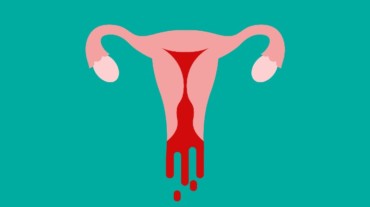Chat with ![]()

Chat with ![]()


Experiencing postcoital bleeding can be alarming for many women, but it is essential to understand that it may not always be a medical emergency. In some cases, spotting or bleeding after sex can occur due to relatively benign reasons. However, if it happens frequently or unexpectedly, it is crucial to seek medical attention to rule out any serious underlying conditions. Here are some common causes of bleeding after sex, shedding light on potential factors and when to seek professional advice.
Health Shots spoke to Dr Ritu Sethi (Gynaecologist & Obstetrician) – Director, The Aura Specialty Clinic Gurgaon & Senior Consultant, to know what causes postcoital bleeding. Dr Sethi explains, “Spotting in small amounts is normal and okay if it happens once in a while or at any unusual time. But if bleeding occurs more than once after sex, then it is a signal for you to get it checked.”

Also read: Do you feel a burning sensation after sex? Dr Cuterus tells you why
Dr Sethi explains that one of the common causes of postcoital bleeding is vaginal dryness. Vaginal dryness refers to a condition where the vagina lacks sufficient lubrication, leading to friction and irritation during sexual intercourse. This can result in the vaginal lining becoming sensitive, potentially causing bleeding after sex.
Vaginal dryness is often associated with hormonal changes, especially during menopause, when estrogen levels decline. Other factors such as breastfeeding, certain medications, stress, or certain medical conditions may also contribute to this issue. Using water-based lubricants during intercourse can alleviate discomfort and reduce the likelihood of bleeding due to vaginal dryness.
Sexually transmitted infections (STIs) can also be a cause of postcoital bleeding. Certain infections such as chlamydia, gonorrhea, trichomoniasis and herpes, can lead to inflammation of the cervix, known as cervicitis. During sexual activity, the cervix may become irritated, leading to bleeding.
It is essential to practice safe sex and get regular STI screenings, especially if engaging in sexual activities with new or multiple partners. Early detection and treatment of STIs can prevent complications like cervicitis and reduce the chances of postcoital bleeding.

Vaginal infections such as bacterial vaginosis and yeast infections, can cause inflammation and irritation of the vaginal tissues. This irritation can result in bleeding after intercourse.

Bacterial vaginosis is characterized by an overgrowth of harmful bacteria in the vagina, while yeast infections are caused by an overgrowth of yeast. Common symptoms of these infections include abnormal discharge, itching, burning, and a fishy odor. Seeking medical treatment for these infections can help alleviate symptoms and prevent bleeding during sex.
While less common, cervical cancer can be a more serious cause of bleeding after sex. Cervical cancer is the abnormal growth of cells in the cervix, and bleeding during or after intercourse is one of the primary symptoms.
Early detection of cervical cancer is vital for successful treatment and a positive prognosis. Regular screenings, such as Pap smears, are recommended, especially for women aged 30 and older. These screenings can detect abnormal cervical changes early, allowing for timely intervention and reducing the risk of postcoital bleeding due to cervical cancer.

Remember, open communication with a healthcare professional is essential to address any concerns and ensure your reproductive health remains in good condition.
Get Latest Updates on Intimate Health, Feminine Hygiene, Menstruation, Sexual Health